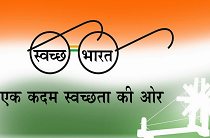 Courtesy: inbministry.blogspot.com
Courtesy: inbministry.blogspot.com
It’s time to change India’s bad habits. A historic opportunity to alter social behavior was lost in 2012 after the Delhi rape case. What better place to make amends and reignite youthful energies than the new, citizen-centric AAP in Delhi 2015?
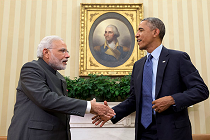 Courtesy: usembassy.gov
Courtesy: usembassy.gov
As Prime Minister Narendra Modi receives U.S. President Obama as his first guest at India’s Republic Day parade, the invitation to Obama and his consequent decision to visit India speak volumes about the prospects for the India-U.S. relationship
 Courtesy: wikimedia
Courtesy: wikimedia
Globally, metropolitan cities are becoming powerful centres that sustain entire countries. In the case of Mumbai, the government can work backwards by stitching the infrastructure and governance together. The tried-and-tested technique is to host an international institution or event. Gateway House argues that Mumbai is most appropriate to be home to the headquarters of BRICS
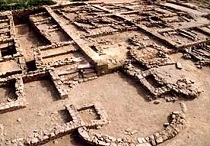 Courtesy: wikimediacommons
Courtesy: wikimediacommons
After a brief a spell of bonhomie marked by Pakistani Prime Minister Nawaz Sharif attending Narendra Modi’s swearing-in ceremony, the hostilities between the two countries have resumed. Amidst the backdrop of increased tensions on the LoC, Gateway House recommends some small, realistic steps forward through state-to-state diplomacy, to mend the bilateral
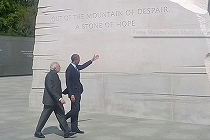 Courtesy: MEA/Government of India
Courtesy: MEA/Government of India
Prime Minister Narendra Modi’s visit to Washington has led to a patching up of differences between the two countries. Building on this understanding will allow the bilateral to operate as a partnership of equals, and move from the current indifference and irritability, to a true convergence of interests
This interview discusses the use of social media and digital platforms for diplomacy
Manjeet Kripalani, Executive Director, Gateway House, speaks to M.D. Nalapat, Director of Geopolitics at Manipal University, on India's strategic maneuverability to increase bilateral trade with both Japan and China.
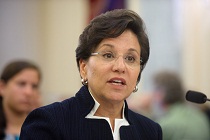 Courtesy: Commerce department\US govt
Courtesy: Commerce department\US govt
Penny Pritzker, U.S. commerce secretary is the new element in the India-U.S. bilateral dialogue. Her business skills have brought a shine to her ministry at home and perhaps she can have the same effect in Delhi
On July 18, Gateway House hosted a Google Hangout titled VI BRICS Summit: Next Steps
 Courtesy: Financial Times
Courtesy: Financial Times
Manjeet Kripalani, Co-founder, Gateway House, in an article for the Financial Times blogs section makes a case for setting up the BRICS development bank in India's financial capital - Mumbai










